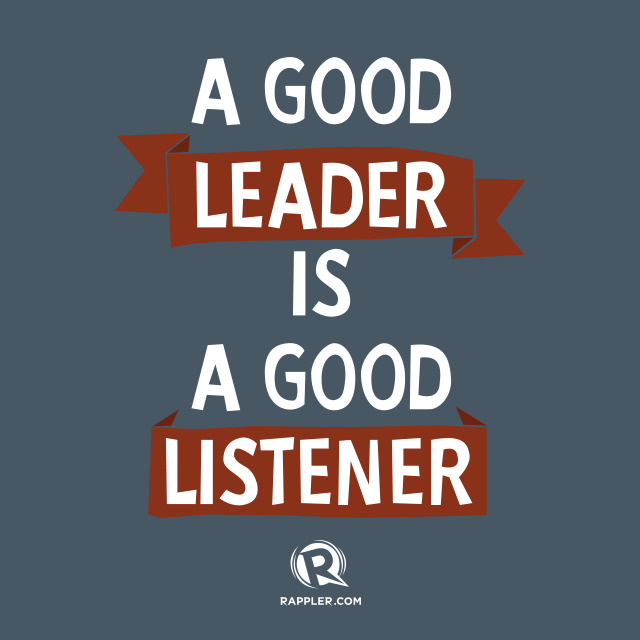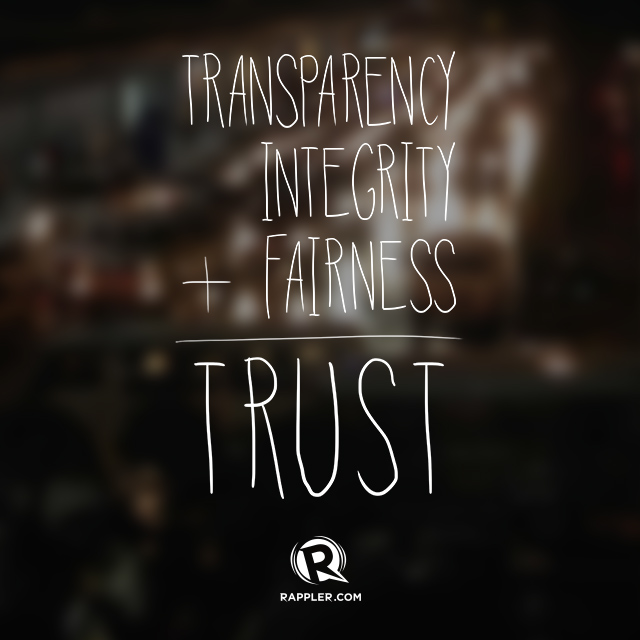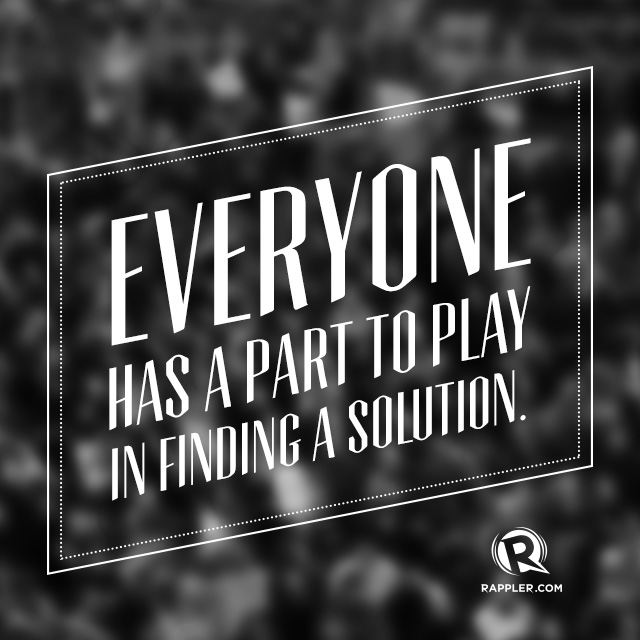7 leadership lessons from Jesse Robredo
The country has lost a leader and a public servant, but hopefully not the example he set as he played those roles
MANILA, Philippines – It's been a year since the death of Interior and Local Government Secretary Jesse Robredo. The country has lost a leader and a public servant, but hopefully not the example he set as he played those roles. Here are leadership lessons we learned from him:

1. A good leader is a good listener.
Jesse Robredo understood the importance of talking to his constituents to serve them better. Good leaders need to listen and understand where others are coming from in order to arrive at better solutions. We should listen to what everyone has to say so we can address their needs, answer their questions, and ask them as well.
"My husband always used to tell me that a public servant should know how to heed the call of the people even if it's against his wishes," said his wife, now Camarines Sur Rep Leni Robredo.

2. Transparency + Integrity + Fairness = Trust
Jesse believed that you earn respect if you stand by your principles. If people see that you are transparent, fair, and firm, others won't ask you to compromise your stand.
A good leader has his motivations and intentions in order. Service must come first so your followers trust that you only have in mind their interests – not fame, recognition, or personal gain.

3. Be amazing at what you do.
It isn't enough that you have good intentions. You have to be good at what you do. A good heart as well as knowledge and skills are necessary to be an effective leader. Promises are far too easy to make, but you also have to have the know-how to deliver.

4. Everyone has a part to play in finding a solution.
Good leaders know that no one can achieve progress alone. The best way to get others involved? Give them a stake in the solution. Show them that they have a role to play and that no role is too small. And then they will be more cooperative, even more proactive, in finding solutions.
Take your cue from Jesse.
"I think his biggest contribution to Naga was that every Nagueño was proud again that they are from Naga. At that point, everyone became very cooperative with everything happening in the city. They regard themselves not as subjects but as stakehodlers," says Leni.

5. Dream big, but stay realistic.
Oftentimes we have our eyes set on lofty goals that we fail to consider its practicality. A good leader knows how to manage his expectations. He dreams big and aims high, but he is also aware of his strengths and weaknesses. Know the resources you have and what you can achieve given with what you have.

6. No position is too high, nor task too low
Aika Robredo once said her father is known to do even menial tasks, like shoveling mud after floods. For Jesse there was no such thing as a job too small for him to do. During disasters, he was the first on the field and the last to leave. A good leader doesn't just sit in his office giving orders when he himself doesn't know how much work each task involves. The intention to serve comes before titles and position.

7. Embrace innovation.
Learning how to adapt is a necessary skill to be an effective leader. Take time to learn how new things work and how you can make them work for you. Know how new technology, for example, affects how people behave and how they use it. More government offices, for example, are exploring social media platforms and applications to better communicate with the people.
No comments:
Post a Comment